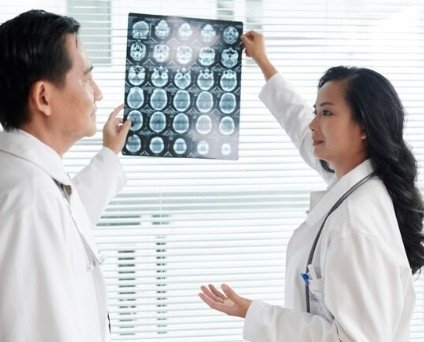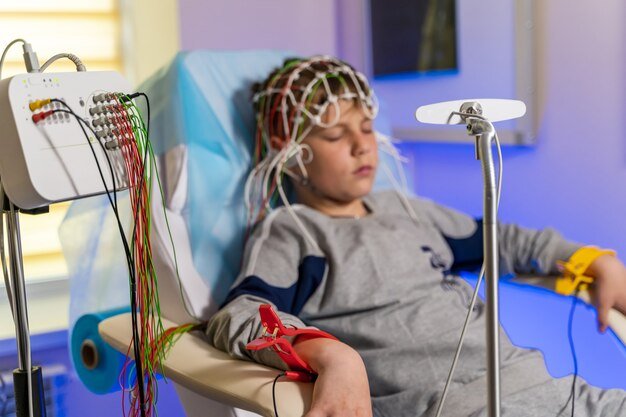Can neurological therapy improve mobility and independence for patients with Parkinson’s disease?
Living with Parkinson’s disease can be challenging, but access to the Best Neurological Disorder Therapy in Greater Noida has given many patients hope and a better quality of life. At Kalyani Health and Rehab Centre, we understand how Parkinson’s affects mobility, independence, and overall well-being, and we are committed to providing evidence-based rehabilitation that helps patients regain control over their daily lives.
For more information, direct chat with us on WhatsApp
Understanding Parkinson’s Disease and Its Impact
Movement is the main symptom of Parkinson’s disease, a degenerative neurological condition. The condition is caused by the gradual loss of dopamine-producing brain cells, leading to symptoms such as tremors, stiffness, slowness of movement, and difficulties with balance and coordination. Beyond motor symptoms, patients may also experience fatigue, speech challenges, and emotional changes that affect their independence.
Mobility becomes one of the greatest concerns for individuals living with Parkinson’s. Simple activities such as walking, getting up from a chair, or maintaining balance can feel overwhelming. In this situation, neurological therapy is essential for regaining self-assurance and functional skills.
How Neurological Therapy Helps in Parkinson’s Disease
Neurological therapy focuses on exercises, techniques, and therapies designed to stimulate the nervous system and improve physical and cognitive functions. For Parkinson’s patients, therapy aims to reduce stiffness, enhance coordination, and strengthen muscles so that daily tasks become easier.
Some of the ways neurological therapy benefits Parkinson’s patients include:
- Improved mobility – Therapy targets walking patterns, posture, and balance, reducing the risk of falls.
- Increased strength and flexibility – Customized exercises keep muscles active and reduce stiffness.
- Enhanced independence – Patients are trained in functional activities to regain confidence in daily routines.
- Cognitive stimulation – Techniques that engage the brain can help slow down cognitive decline associated with Parkinson’s.
- Emotional well-being – Regaining movement abilities often improves mental health and quality of life.
By choosing the Best Neurological Disorder Therapy in Greater Noida, patients can access structured programs that address their unique needs and ensure steady progress.
The Role of Physiotherapy in Neurological Rehabilitation
Physiotherapy is one of the most important aspects of neurological therapy for Parkinson’s patients. Skilled physiotherapists use a combination of strength training, stretching, and balance exercises to encourage mobility. For example, gait training helps patients walk with smoother movements, while coordination exercises improve stability and reduce the risk of falls.
Techniques such as resistance training, treadmill exercises, and posture correction are often included in rehabilitation programs. These help in strengthening weakened muscles, reducing rigidity, and promoting fluid movement. At Kalyani Health and Rehab Centre, our therapists integrate physiotherapy into comprehensive neurological care to ensure holistic improvement.
Occupational Therapy for Daily Independence
Occupational therapy complements physiotherapy by focusing on functional independence. Many Parkinson’s patients struggle with daily tasks such as dressing, eating, writing, or maintaining personal hygiene. Occupational therapists teach strategies and adaptations to make these activities easier.
Through assistive tools, modified techniques, and structured routines, patients can perform their everyday activities with greater ease. This assistance improves self-esteem in addition to restoring independence. By incorporating occupational therapy, the Best Neurological Disorder Therapy in Greater Noida ensures that patients don’t just improve physically but also live more independently.
Speech and Cognitive Therapy
Parkinson’s often impacts speech, making communication difficult. Neurological therapy includes speech therapy, which focuses on improving vocal strength, clarity, and expression. Cognitive therapy, on the other hand, works on memory, problem-solving, and attention skills that may decline with disease progression.
By including these therapies, patients are able to communicate more effectively and maintain their mental sharpness, leading to better social interactions and quality of life.
Importance of Early Intervention
One of the key factors in successful neurological therapy for Parkinson’s disease is early intervention. The earlier patients begin therapy, the more effectively symptoms can be managed. While therapy cannot cure Parkinson’s, it can significantly slow the progression of mobility issues and help patients stay active for longer.
Choosing the Best Neurological Disorder Therapy in Greater Noida at the right time allows patients to access personalized programs that maximize results and reduce complications in later stages.
A Comprehensive Strategy at Kalyani Health and Rehabilitation Center
At Kalyani Health and Rehab Centre, we believe in a holistic approach to managing Parkinson’s disease. Our programs combine physiotherapy, occupational therapy, speech therapy, and counseling to create a comprehensive plan tailored to each patient.
Our rehabilitation specialists not only focus on physical improvements but also on mental and emotional well-being. By addressing the patient as a whole, therapy becomes more effective in restoring independence and ensuring long-term benefits.
Patients and families often notice a visible difference when therapy is consistent. Movements become smoother, energy levels improve, and daily life feels more manageable. For this reason, Kalyani Health and Rehab Centre is frequently regarded as the best place in Greater Noida to receive therapy for neurological disorders.
Long-Term Benefits of Neurological Therapy
Neurological therapy is not a one-time solution; it requires consistent effort and regular practice. Over time, patients benefit from:
- Reduced dependence on caregivers
- Lower risk of injuries due to falls
- Improved confidence in performing daily tasks
- Improved control of symptoms, including tremors and stiffness
- Enhanced emotional resilience and positivity
These long-term benefits highlight why patients should consider neurological therapy as an essential part of their Parkinson’s management plan.
Conclusion
Parkinson’s disease can take away mobility and independence, but neurological therapy offers a pathway toward regaining control. With personalized care, structured exercises, and comprehensive rehabilitation, patients can improve their physical abilities and live with greater independence.
At Kalyani Health and Rehab Centre, we are dedicated to providing the Best Neurological Disorder Therapy in Greater Noida, designed to support patients at every stage of their journey. With the right guidance and consistent therapy, Parkinson’s patients can rediscover confidence, mobility, and a better quality of life.
Visit https://kalyanihealthrehab.com/ today and take the first step toward a pain-free life with the Best Orthopaedic Centre in Greater Noida!




